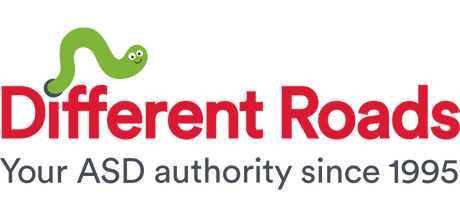If you're looking for more resources on teaching social skills to younger learners, check out our new curriculum: Pre-Communication Social Engagement Skills!
Sharing and cooperative play are among the most difficult skills for children to learn, whether or not they have a diagnosed disability. Why is sharing so hard? Because it necessarily involves giving something up, and usually it’s something highly preferred that is being forfeited. Cooperative play is similarly challenging because there’s often an element of compromise required. Play isn’t cooperative if one partner is getting his or her way the whole time; what makes it cooperative is the give and take. Taking is usually easier for some children than giving, and most children struggle when asked to share their toys or their parents’ attention, but there are ways to make it easier to learn these important social skills.
First, most simply, reinforce sharing and cooperation as you would reinforce any behavior that you want to see more of. Often when a child is asked to share or to compromise, the immediate and only consequence for that behavior is losing something that he or she was enjoying. This is not going to be effective for increasing sharing and cooperating in the long run, but we can add reinforcers that make it more motivating to engage in these responses again in the future. If a child shares his toys and receives lavish praise and maybe access to even better toys as a reward, he may be more likely to want to share in the future. Similarly, being willing to take turns or let someone else “go first” in a game might be more likely to happen in the future if that behavior is followed by some other reinforcer like getting an extra turn or the option of picking the game next time.
Second, approach sharing and cooperation as skills to be built up gradually. This might mean stacking the deck for success initially. Sharing and cooperation can be easier to teach when the target peers are likely to be cooperative and patient. Both areas of social skills may be modeled from peers, perhaps slightly older children, who are willing to demonstrate how to share and cooperate. Peers who are willing to take “short turns” and quickly return shared items, or to accept small concessions at first, are also going to be better partners for the learner who is only just developing these social skills, rather than peers who might be trying to learn the same lessons at the same time.
It can also be a lot easier to encourage sharing and cooperation if the games and activities where they are being practiced are not competitive. It may be harder to recruit cooperation or sharing when there is a clear “loser” and “winner” as an outcome, resulting in extra motivation to do the opposite of sharing and cooperating. Poker players don’t cooperate or share with each other, because they want to win. But, sharing and cooperating are less costly and in fact often enjoyable when applied in creative, productive situations. Having children practice cooperation and sharing when doing a craft together, for example, may be more effective than during a competitive activity.
Finally, don’t jump to complex social skills like sharing and cooperating until the child has the basic skills in place for the target activities. It would be a lot to expect someone to learn how to do something else while also learning to share and cooperate. To return to the idea of working on sharing and cooperating during a craft activity, make sure that craft is something that isn’t entirely new to the learner and that he or she has the basic skills to do the activity. This will take some of the pressure off and make sure that the focus of learning can be on the more complex social skills.
About The Author
Dana Reinecke is a doctoral level Board-Certified Behavior Analyst (BCBA-D) and a New York State Licensed Behavior Analyst (LBA). Dana is an Assistant Professor and Department Chair of the Department of Special Education and Literacy at Long Island University Post. Dana provides training and consultation to school districts, private schools, agencies, and families for individuals with disabilities. She has presented original research and workshops on the treatment of autism and applications of ABA at regional, national, and international conferences. She has published her research in peer-reviewed journals, written chapters in published books, and co-edited books on ABA and autism. Current areas of research include use of technology to support students with and without disabilities, self-management training of college students with disabilities, and online teaching strategies for effective college and graduate education. Dana is actively involved in the New York State Association for Behavior Analysis (NYSABA), and is currently serving as President (2017-2018).

